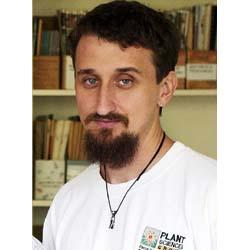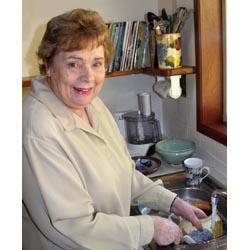Waste not, want not - understanding water recycling
Published on 16 August, 2006
When we turn the tap on, what do we know comes out? According to a water expert visiting Central Queensland University Rockhampton this month, we know surprisingly little about it.
Project Officer for Water Management Issues for the Sunshine Coast Environment Council, Jenifer Simpson will tell a Rockhampton audience that Australians need to understand more about what’s in their water and the new technologies available to treat our water.
 Ms Simpson says: “we now have the technology and expertise to safely reclaim water to drinking quality”.
Ms Simpson says: “we now have the technology and expertise to safely reclaim water to drinking quality”.
However she believes we are inhibited because of a lack of community knowledge and “hydrocoprophobia” - a fear of what’s in our water. This became evident in the recent Toowoomba debate.
“Sophisticated and efficient new technologies are now available and we need to take advantage of them, understand them and learn to trust them, to make the most out of the water we have available”.
Ms Simpson will present 'From waste-d-water to pure water', the same title of her self-published book, on Monday, August 28, from 11am to 12pm at CQU Rockhampton, building 29 G.05. The presentation will also be videoconferenced to Bundaberg, Emerald, Gladstone, Mackay and Queensland University of Technology.
Rockhampton’s own water recycling expert Ben Kele from CQU [who is coordinating Ms Simpson’s visit], said water recycling needs to address the particular needs of the local area.
“Gladstone has 100% water recycling, where industry now uses recycled water instead of drinking water in its processes”.
However, he says: “Rockhampton has no shortage of drinking water (one of the best cities in Australia in this regard), and has nearby industry and agricultural activities that can potentially reuse all the recycled water produced by Rockhampton”.
“Yeppoon is also looking at 100% reuse for irrigation purposes in its local area, and with a pipeline from the barrage there will be no shortage of drinking water".
Mr Kele said it costs a relatively large amount of money to treat wastewater to a drinking water standard compared with producing recycled water 'fit-for-purpose' for cooling tower water for industry or irrigation.
 “Economics is one of the big drivers in regards to introducing recycled water into the drinking water supply”.
“Economics is one of the big drivers in regards to introducing recycled water into the drinking water supply”.
Mr Kele says that Toowoomba is a different story.
“Toowoomba is different in regards to a lack of drinking water and minimal nearby industry that can substitute water economically. There is a great deal of debate as to whether agriculture near Toowoomba can sell water to the city and have it transported in an economic manner”.
Mr Kele says it comes down to money.
“If you have the money you can produce a very high quality recycled water from sewerage. For example, in Singapore the water is so pure it is used in the production of computer chips; a process that requires ultra-pure water (much higher quality than normal drinking water)”.
Photo above: Jenifer Simpson.
Photo below: Ben Kele.

